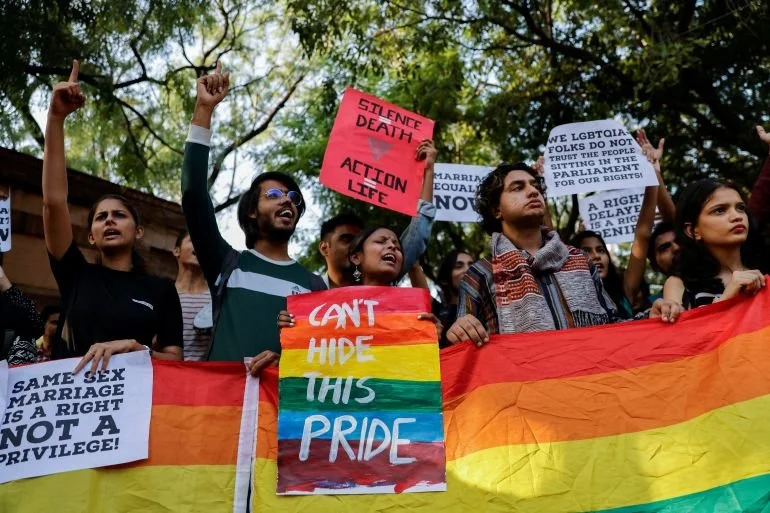About Us
Section 377 of the Indian Penal Code, enacted during British colonial rule in 1860, criminalized sodomy in India, leading to widespread harassment and violence against the LGBTQ community for decades. In the early 1990s, activists began pushing for legal reform leading to a long, thirty-year battle in the courts involving multiple judicial rulings. Despite a landmark 2009 Delhi High Court ruling declaring Section 377 unconstitutional, it was reinstated in 2013 by the Supreme Court. Finally, in 2018, the Supreme Court decriminalized Section 377, marking a significant victory for LGBTQ rights. Yet, challenges remain, including the lack of civil rights such as marriage, adoption, tax benefits, inheritance, and protection in the workplace.
In 2023, a judgment on same-sex marriage was delivered by a five-judge constitutional bench of the Supreme Court of India. The court failed to provide same-sex couples with marriage equality. However, the decision disappointed many, sparking a fundamental debate on whether such matters should be decided by the judiciary or Parliament. The court emphasized that constitutional morality cannot be shaped by social morality; while many asserted the institution's responsibility to safeguard minority rights. Nevertheless, the present reality leaves the determination of queer community rights in India to our elected officials, and in turn, to the voters.
A recent poll conducted by the Pew Research Center revealed that 53% of people in India support the concept of same-sex marriage, indicating significant public sentiment. However, the pivotal question remains whether individuals actually prioritize this issue when casting their votes. Do voters possess adequate knowledge about their elected representatives' stances on this matter, and do they factor this information into their voting decisions? Initiating steps to elevate same-sex marriage as a mainstream voting concern in India necessitates raising awareness among voters on two key points:
1. Considering LGBTQ rights as a legitimate factor when casting their votes
2. Understanding their representatives' positions on issues affecting the Queer community
The Garv Project aims to accomplish just that. Our aim is to ensure that the Queer community of India is adequately represented in this democratic system. We seek to mobilize networks of allies who believe that the queer community should be granted equal rights and protection under the constitutional framework of India.
Image from: Al Jazeera, 2023

